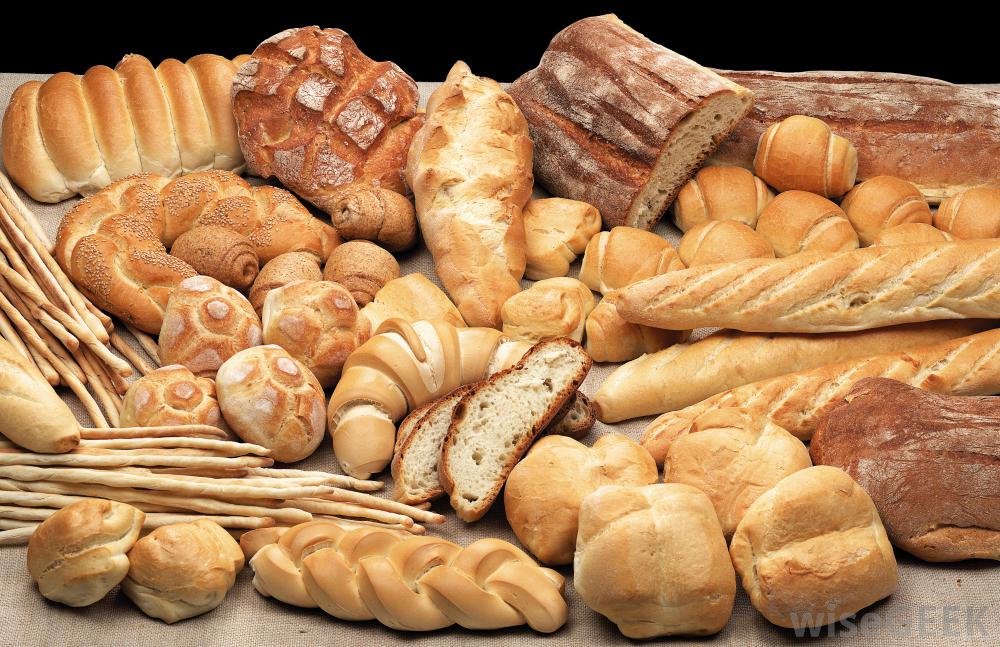“You are what you eat.” A loose and jovial witticism that actually holds a lot of truth.
What we eat affects our bodies and more importantly, our brains, in pretty sizable ways. The foods that we eat and the diets that we pursue have a major impact on our mood and cognitive function, but what exactly are the psychological outcomes of our dining decisions?
Cutting carbs is a recipe for disaster.

Photo courtesy of wisegeek.com
For those of you who have ever tried your hand at a low-carb diet, you understand the unavoidable misery and agony that ensues. You expect me to give up bread and still function like a normal person? Yeah, right.
From a psychological standpoint, giving up carbs actually should make you feel a tad bit homicidal (okay, that might be a little dramatic, but I love bread). Carbohydrates have serious leverage when it comes to the levels of tryptophan and Serotonin in the brain.
Carbs are responsible for sending tryptophan to the brain. Once it enters the brain, Tryptophan triggers the synthesis of Serotonin, a “mood regulator.” While Tryptophan can be found in some protein-rich foods as well, carbohydrates are superior at passing amino acids through the bloodstream.
So if carbs are an important part of mood regulation, what happens when we try to endure the suffering of a low carb diet? Researchers at Arizona State University found that “a very low carbohydrate (ketogenic) diet was found to enhance fatigue and reduce the desire to exercise in overweight adults after just two weeks.” Basically, it is pretty much expected that cutting carbs is going to make you feel moderately miserable.
Sugar is pretty much crack.

Photo by Karina Rao
“Sweets and fats trigger the same pleasure centers in the brain that addictive drugs do,” says Sherry L. Pagoto, PhD, associate professor of preventive and behavioral medicine at University of Massachusetts Medical School. Is your intense sugar addiction starting to make sense now?
This is why most researchers note a link between sugar and addictive eating behavior. According to a study that was published in the International Journal of Eating Disorders, “81 obese people seeking treatment for binge eating, 57 percent met the criteria for food addiction.” The foods that these people were addicted to? Crazy high in sugar.
Brain food is real.

Photo by Helen Poon
I don’t know about anyone else, but I always used big tests as an excuse to have my parents wake up at the crack of dawn and make me a delicious, protein-packed breakfast. Was I the only one who felt like cheerios were just not going to cut it when it came to brain food?
While I had no actual facts behind my theory, the concept of “brain food” is actually sincere. Certain foods are able to boost our memories and increase blood flow to the brain, ultimately improving our cognitive function.
The most beneficial foods for our brains are veggies (especially those leafy greens), berries (especially dark ones), omega-3 fatty acids and walnuts. While my last minute breakfast of eggs and bacon may have been enjoyable, it would have been a way better plan to focus on eating these foods before hand to get some extra brain power.
Anti-brain food is also real.

Photo by Rosie McCormick
Now that you know the truth about brain food, I should probably let you know that a lot of food is also harmful to brain function. Foods like tofu, sodium and trans fats are known to negatively affect memory and cognitive function.
Of course, this doesn’t mean that your brain will stop working the second you pop an extra salty pretzel in your mouth, but it is better to go easy on these foods, especially if you want to keep your mind as sharp as possible.
Everything that we eat affects out minds just as much as it does our stomachs. When making dietary decisions, it is imperative to remember that food impacts far more than just our waistlines.


